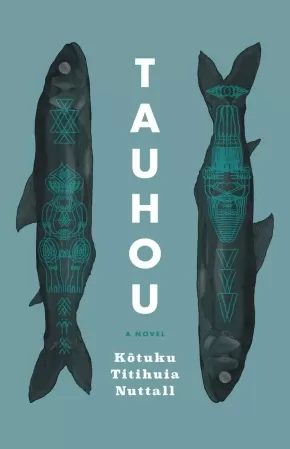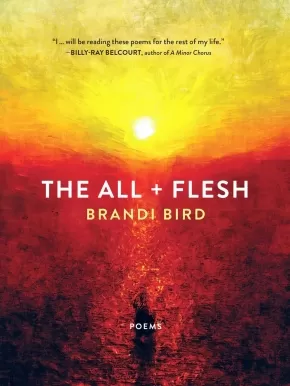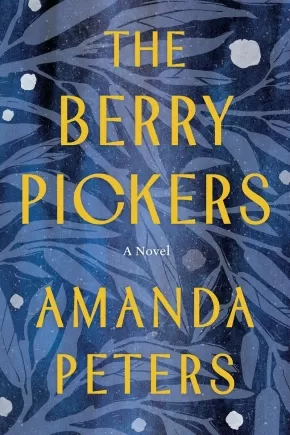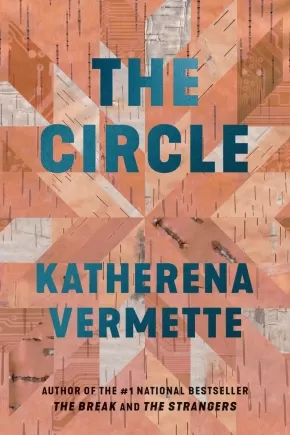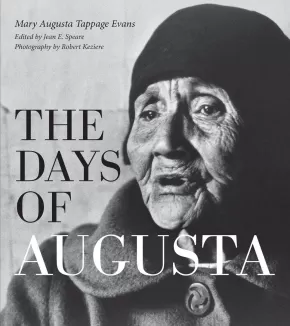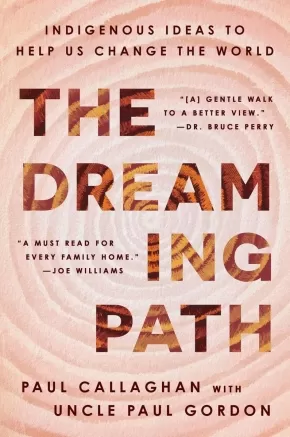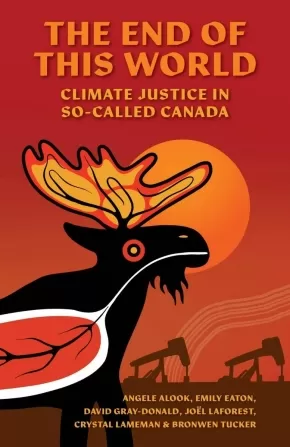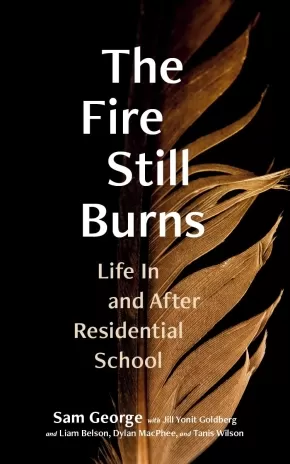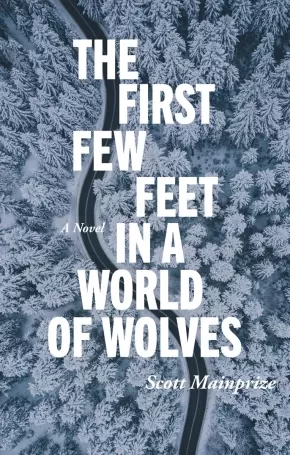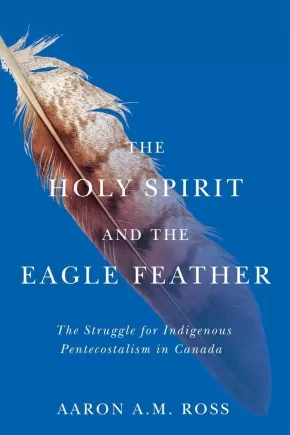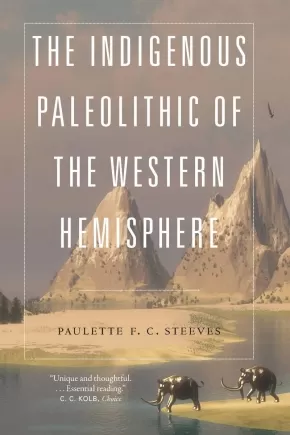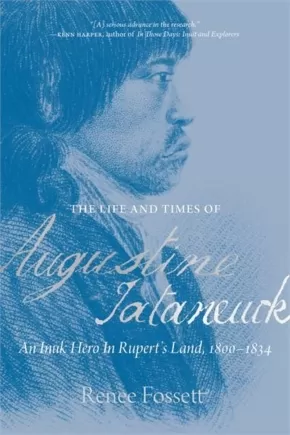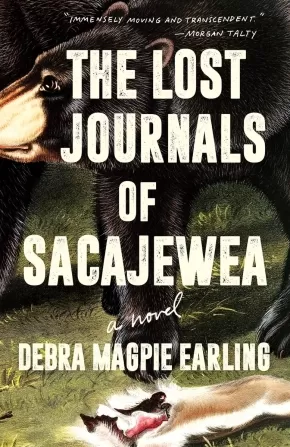
Adult Book
421
-
435
of
1380 Results;
Sort By
Go To
of 92
Tauhou: A Novel
$24.99
Text Content Territories:
Indigenous Canadian; First Nations; Salish; Coast Salish; Saanich (WSANEC); Indigenous New Zealander; Maori; Ngati Tuwharetoa; Te Ati Awa;
Reading Level: N/A
ISBN / Barcode: 9781487011697
Synopsis:
Synopsis:
Dear grandmother, I am writing this song, over and over again, for you. I am a stranger in this place, he tauhou ahau, reintroducing myself to your land.
Tauhou is an inventive exploration of Indigenous families, womanhood, and alternate post-colonial realities by Kotuku Titihuia Nuttall, a writer of Maori and Coast Salish descent. This innovative hybrid novel envisions a shared past between two Indigenous cultures, set on reimagined versions of Vancouver Island and Aotearoa New Zealand that sit side by side in the ocean.
Each chapter is a fable, an autobiographical memory, a poem. A monster guards cultural objects in a museum, a woman uncovers her own grave, another woman remembers her estranged father. On rainforest beaches and grassy dunes, sisters and cousins contend with the ghosts of the past - all the way back to when the first foreign ships arrived on their shores.
In a testament to the resilience of Indigenous women, the two sides of this family, Coast Salish and Maori, must work together in understanding and forgiveness to heal that which has been forced upon them by colonialism. Tauhou is an ardent search for answers, for ways to live with truth. It is a longing for home, to return to the land and sea.
Reviews
"Tauhou is a search for answers, of finding ways to live with the truth. Some of the stories are like fables, others like poetry, and all are a sheer joy to read. A longing for home resonates, a gift for those of us searching for our island also."— Kete Books
"This one's for the lovers of language, lean prose-poetry you can dip in and out of and think about for hours. Best read beside a large body of water."— Woman Magazine
"Brilliantly written in the best of Maori and Coast Salish practices of story, Tauhou is teeming with possibility, love, and dreaming otherwise." — Leanne Betasamosake Simpson, author of Noopiming: The Cure for White Ladies
"Kotuku Titihuia Nuttall takes threads made from all the colours of the Indigenous experience and crosses them over oceans, cultures, and time." — Tayi Tibble, author of Poukahangatus and Rangikura
"Kotuku Titihuia Nuttall's Tauhou is a brilliant example of what language can do when forged with intentional hands and a fantastic mind. Nuttall's work binds words in a way that doesn't hold too tightly but steadfastly contains the many Ancestors present in Nuttall's life and work, weaving together a tapestry of nuance and witnessing. Masterful dialogue and rich scenes move emotions like the currents around Aotearoa and the Salish Seas, a beautiful display of lyricism that loudly proclaims that Kotuku Titihuia Nuttall belongs in the crescendo of rising voices in CanLit. Tauhou is not a collection to miss!" — jaye simpson, author of it was never going to be okay
"The stories in this collection move like the waves of the ocean that divide Vancouver Island and Aotearoa. Once you emerge from Tauhou's narrative depths, you'll miss its imagination, its rhythms, its heart." — Alicia Elliott, author of A Mind Spread Out on the Ground
Educator Information
Includes a SENĆOŦEN glossary, a Te Reo Māori glossary, an Author's Notes and Acknowledgements.
Curriculum Connections: Indigenous Studies
Additional Information
224 pages | 5.00" x 7.75" | Hardcover
Teaching Where You Are: Weaving Indigenous and Slow Principles and Pedagogies
$32.95
Format:
Paperback
Text Content Territories:
Indigenous Canadian;
ISBN / Barcode: 9781487554019
Synopsis:
Synopsis:
Teaching Where You Are offers a guide for non-Indigenous educators to work in good ways with Indigenous students and provides resources across curricular areas to support all students. In this book, two seasoned educators, one Indigenous and one settler, bring to bear their years of experience teaching in elementary, secondary, and post-secondary contexts to explore the ways in which Indigenous and Slow approaches to teaching and learning mirror and complement one another.
Using the holistic framework of the Medicine Wheel, Shannon Leddy and Lorrie Miller illustrate the ways in which interdisciplinary thinking, a focus on experiential learning, and the thoughtful application of the 4Rs – Respect, Relevance, Reciprocity, and Responsibility – can bring us back to the principle of teaching people, not subjects. Bringing forth the ways in which colonialism and cognitive imperialism have shaped Canadian curriculum and consciousness, the book offers avenues for the development of decolonial literacy to support the work of Indigenizing education. In considering the importance of engaging in decolonizing and Indigenizing approaches to education through Slow and Indigenous pedagogies using the lens of place-based and land-based education, Teaching Where You Are presents a text useful for teachers and educators grappling with the ongoing impacts of colonialism and the soul-work of how to decolonize and rehumanize education in meaningful ways.
Reviews
"Shannon Leddy and Lorrie Miller weave a beautiful metaphorical tapestry of Slow and Indigenous ways of knowing and being that simultaneously honours each framework’s distinct features and identifies complementary principles, teachings, and pedagogies to create exciting new educational possibilities. In this era of truth and reconciliation, holistic pedagogies are needed to offer hope, love, care, and deep ways of feeling, being, knowing, and doing, which this book offers, and so much more." — Jo-ann Archibald, Professor Emeritus of Educational Studies, University of British Columbia
"Teaching Where You Are is a must-read for educators and preservice teachers who are dedicated to responsibly providing for Indigenous ways and perspectives in their professional practice. With recognition of the discomfort educators might feel approaching Indigeneity in their work, Leddy and Miller acknowledge and help us, as settlers, to activate the process of unpacking and unlearning colonizing perspectives. This book offers a pathway of knowledge for teachers to develop the self and nurture authentic, human approaches to walking alongside Indigenous wisdom and cross-cultural understanding in their classrooms.” — Sheryl Smith-Gilman, Associate Dean of Academics, Faculty of Education, McGill University
Educator Information
Table of Contents
List of Illustrations
Abbreviations
Foreword: Weaving and Reweaving Indigenous Education in New Ways through the Timelessness of Transformative Thought, Teaching, and Learning xvii
Herman Michell
Preface
Acknowledgements
1. Tawâw
Bringing Indigenous Knowledge and Pedagogies into the Class
Indigenous Ways and Reconciliation
The Medicine Wheel Framework, Our Loom
Warp and Weft: Connecting Slow to Indigenous Ways
2. Building Decolonial Literacy for Indigenous Education
Historically Rooted Thought: We Are All Colonized People
It Is Not about the Lesson Plans
Ontologies
Identity
Place
Relationship
Weaving
Sourcing and Preparing Materials
3. Slow Ways and Indigenous Ways
Disconnecting from the Clock and Caring Deeply
Experiential
Land Conscious/Place Conscious
Deeply Relational
Internal Connection
Spinning
4. East – Spiritual – Respect
August on the Salish Sea: Tucked into a Bay
Dyeing the Yarn before the Weave
5. South – Emotional – Relevance
Why Emotion Matters
Decolonizing Is a Slow and Careful Business
Taking Trauma into Account
Developing Effective Practices
Circle Pedagogy
Winding the Wool
6. West – Physical – Reciprocity
The Unseen
The Visible, Physical, Material World
In the Classroom
Pedagogy that Nurtures
Relational Place-Conscious Pedagogy
Setting up the Loom
7. North – Intellectual – Responsibility
What Counts as Knowledge? How Much Knowledge Counts?
It Really Isn’t about the Lesson Plans
Adding an Indigenous Lens
Developing Effective Practices
Kendomang Zhagodenamonon Lodge
Button Blankets and Starblankets
Tiny Orange Sweater Project
Summing Up
Weaving and Finishing
8. Pimoteh (Walking)
References
Index
Additional Information
192 pages | 6.00" x 9.00" | 15 colour illustrations and 2 b&w figures | Paperback
The All + Flesh: Poems
$19.99
Format:
Paperback
Text Content Territories:
Indigenous Canadian; First Nations; Anishinaabeg; Ojibway; Saulteaux; Cree (Nehiyawak); Métis;
Reading Level: N/A
ISBN / Barcode: 9781487011826
Synopsis:
Synopsis:
Brandi Bird's frank, transcendent poetry explores the concepts of health, language, place, and memory in this long-anticipated debut collection.
Brandi Bird's long-anticipated debut poetry collection, The All + Flesh, explores the concepts of health, language, place, and memory that connect its author to their chosen kin, blood relatives, and ancestral lands. By examining kinship in broader contexts, these frank, transcendent poems expose binaries that exist inside those relationships, then inspect and tease them apart in the hope of moving toward decolonial future(s). Bird's work is highly concerned with how outer and inner landscapes move and change within the confines of the English language, particularly the "I" of the self, a tradition of movement that has been lost for many who don't speak their Indigenous languages or live on their homelands. By exploring the landscapes the poet does inhabit, both internally and externally, Bird's poems seek to delve into and reflect their cultural lineages-specifically Saulteaux, Cree, and Métis-and how these transformative identities shape the person they are today.
I am made of centuries & carbohydrates
the development of my molars
the hunger the teeth grew
has been with me since childhood
I can't escape the mouths of others
Awards
- 2024 Poetry in English, Indigenous Voices Awards
Reviews
"Since hearing Brandi Bird at a reading in a park in summertime recite the lines, "I know / then that there is hope / until I die & then / there is other / people's hope," I have thought about them many times, they have merged with my own consciousness. That's the power of Bird's poems-they resonate at such a visceral and cerebral level that they become a part of you. The All + Flesh marks the arrival of an endlessly moving and astounding voice in Indigenous poetry. I, for one, will be reading these poems for the rest of my life." — Billy-Ray Belcourt, author of A MINOR CHORUS
"In The All + Flesh, Brandi Bird maps the psychic space between 'NDN compartmentalization' and split prairies, from bus depots to 'endocrine storms,' from LiveJournal to a living history of relocation under land theft. 'My body is not an empire but first contact happened at / birth' and 'I eat / until my mouth needles / the dark.' With exacting lucidity, Bird's lyrics chart the body as a reservoir for colonial malice, a site of resistance, and a conduit for a voice that is visceral, immediate, and uncompromising. An absolute triumph of a debut."— Liz Howard, author of Letters in a Bruised Cosmos
"A stunning collection with carefully crafted, searing poems that refuse artifice, indirectness, and voyeurism. Brandi Bird writes the experience of illness and Indigeneity into a world that accepts illness only if it perpetuates colonial beauty and body standards, then interrogates the racist systems that disallow care and compassion for Indigenous people. These poems are tender and surprising; they are holes travelling through time and space. They are able to shapeshift God into pills, prayers, seeds, and stars. The All + Flesh has taken root in my mind and I'm happy to let it grow there." — Jessica Johns, author of Bad Cree
Additional Information
96 pages | 6.00" x 8.00" | Paperback
The Art of Mi'kmaw Basketry
$24.95
Artists:
Format:
Paperback
Reading Level: N/A
ISBN / Barcode: 9781459507210
Synopsis:
Synopsis:
Mi’kmaw artists are creating a wide range of imaginative and beautiful work using the skills and traditions of basketry weaving given to them by their elders and ancestors. In this book, nine artists present their work and their stories in their own words. Their unique artistic practices reflect their relationships to the natural world around them and their abilities to create unique and beautiful objects using a mix of traditional and contemporary materials and forms.
Each artist's account of their background and practice is introduced by editor shalan joudry. Their words stand alongside examples of their art, photographed in their studios by Holly Brown Bear.
This book is a milestone in creating awareness of and celebrating a group of important contemporary artists working today in Mi’kma'ki, the traditional territory which embraces Nova Scotia, New Brunswick, Prince Edward Island and portions of Quebec.
Featured artists:
- Peter Clair, Elsipogtog First Nation, New Brunswick.
- Virick Francis, Eskasoni First Nation, Nova Scotia.
- Stephen Jerome, Gesgapegiag, Quebec.
- Della Maguire, Glooscap First Nation, Nova Scotia.
- Frank Meuse, L'sittkuk First Nation (Bear River), Nova Scotia.
- Margaret Peltier, We'koqma'q First Nation, Nova Scotia.
- Sandra Racine, Elsipogtog First Nation, New Brunswick.
- Nora Richard, Lennox Island, Prince Edward Island.
- Ashley Sanipass, Indian Island, New Brunswick.
Additional Information
10.00" x 8.03" | Paperback | 100+ Colour Photographs
The Berry Pickers: A Novel
$25.99
Format:
Paperback
Text Content Territories:
Indigenous Canadian; First Nations; Mi'kmaq;
Reading Level: N/A
ISBN / Barcode: 9781443468183
Synopsis:
Synopsis:
A four-year-old girl goes missing from the blueberry fields of Maine, sparking a tragic mystery that will remain unsolved for nearly fifty years
July 1962. A Mi’kmaq family from Nova Scotia arrives in Maine to pick blueberries for the summer. Weeks later, four-year-old Ruthie, the family’s youngest child, vanishes mysteriously. She is last seen by her six-year-old brother, Joe, sitting on her favourite rock at the edge of a berry field. Joe will remain deeply affected by his sister’s disappearance for years to come.
In Boston, a young girl named Norma grows up as the only child of an affluent family. Her father is emotionally distant, her mother frustratingly overprotective. Norma is often troubled by recurring dreams and visions that seem more like memories than imagination. As she grows older, Norma slowly comes to realize there is something her parents aren’t telling her. Unwilling to abandon her intuition, she will spend decades trying to uncover this family secret.
A stunning debut by a vibrant new voice in fiction, The Berry Pickers is a riveting novel about the search for truth, the shadow of trauma and the persistence of love across time.
Reviews
“Amanda Peters manages to take you home to the East Coast in the very best ways – through family love and personal grief and the precious accounting of minutes and memories. You cannot help but love these characters from the first chapter. They stay with you long after the last page.” — Cherie Dimaline, bestselling author of The Marrow Thieves
“The Berry Pickers is an intimate story about the destruction wreaked on a family when their youngest child goes missing. Peters brilliantly crafts a multi-layered tale about how one irrational act creates irrevocable harm that ripples through multiple lives, including the lives of the perpetrators. This is an emotional novel that is beautifully rendered. An amazing read from a talented new voice.” — Michelle Good, bestselling author of Five Little Indians
“A marvelous debut. The Berry Pickers has all the passion of a first book but also the finely developed skill of a well-practiced storyteller. The Berry Pickers is a triumph.” — Katherena Vermette, bestselling author of The Break
Additional Information
320 pages | 6.00" x 9.00" | Paperback
The Circle (HC) (2 in Stock)
$32.00
Format:
Hardcover
Text Content Territories:
Indigenous Canadian; Métis;
ISBN / Barcode: 9780735239654
Synopsis:
Synopsis:
“The Circle is a polyphonic masterpiece.” —Erika T. Wurth, author of White Horse
From the award-winning and #1 bestselling author of The Break and The Strangers comes a poignant and unwavering epic told from a constellation of Métis voices that consider the fallout when the person who connects them all goes missing
The concept was simple. You sit a bunch of people in a circle—everyone who hurt, everyone who got hurt, all affected—and let them share. Some people, it helped them heal, for sure. Others went in angry and left a different kind of angry. Learned how the blame belonged on the system, the history, the colonizer, the big things that were harder to change than one bad person.
The day that Cedar Sage Stranger has been both dreading and longing for has finally come: her sister Phoenix is getting out of prison.
The effect of Phoenix’s release cascades through the community. M, the young girl whom she assaulted, is triggered by the news. Her mother, Paulina, is worried and her cousin is angry—all feel the threat of Phoenix’s release. When Phoenix is seen lingering outside the school to catch a glimpse of her son, Sparrow, the police get a call to file a report—but the next thing they know, she has disappeared.
Amid accusations and plots for revenge, past grievances become a poor guide in a moment of danger, and the clumsy armature of law enforcement is no match for the community. Cedar and her and Phoenix’s mother, Elsie, continue down different paths of healing, while everyone in their lives form a circle around the chaos, the calm within the storm, and the beauty in the darkness.
Fierce, heartbreaking, and profound, Vermette’s The Circle is the third and final companion novel to her bestsellers The Break and The Strangers. Told from various perspectives, with an unforgettable voice for each chapter, the novel is masterfully structured as a Restorative Justice Circle where all gather—both the victimized and the accused—to take account of a crime that has altered the course of their lives. It considers what it means to be abandoned by the very systems that claim to offer support, how it feels to gain a sense of belonging, and the unanticipated cost of protecting those you love most.
Reviews
“Like Orange's There There, The Circle is a polyphonic masterpiece. Brutal at turns, and tender at others, it's about the tremendous impact one person can have on an entire community.” —Erika T. Wurth, author of White Horse
“Like its sisters in this trilogy, every page of The Circle is a steady and rhythmic observation of our humanity as Indigenous people. It asks what restitution and justice could possibly feel like when we, as Indigenous people, are all subjects of this unjust empire called Canada. This book is truth in all her fluid forms. It is an altar of love, hope, and grief amidst the relentless torment of settler colonialism. Katherena Vermette, in her distinctly elegant style, offers a glimpse into the devastating beauty of our people and our capacity to keep moving forward, one foot at a time, guided by the love and strength of our ancestors. It reminds us that, in the end, all that’s left is the stories we carry with the people we loved.”—Elle-Máijá Tailfeathers, filmmaker and actor
“A perfect companion to The Break and The Strangers, Katherena Vermette’s The Circle draws us back into the lives of characters who we’ve come to know so intimately that their heartache is our heartache. With each new perspective as distinct and vivid as the last, The Circle acts as an unsettling reminder that the systems designed to help the most vulnerable too often end up betraying them. This is a stellar finale with an ending that will leave you both heartbroken and hopeful.”—Amanda Peters, author of The Berry Pickers
Additional Information
272 pages | 6.00" x 9.00" | Hardcover
The Days of Augusta
$24.95
Artists:
Editors:
Format:
Paperback
Text Content Territories:
Indigenous Canadian; First Nations; Salish; Interior Salish; Secwepemc (Shuswap);
Reading Level: N/A
ISBN / Barcode: 9781990776489
Synopsis:
Synopsis:
Hailed as a contemporary classic of oral literature, The Days of Augusta is Shuswap elder Augusta Evans’ memories of a lifetime that spanned from 1888 to 1978.
Accompanied by Robert Keziere’s intimate photographs, Augusta’s rhythmic prose reads like poetry. She depicts with strength and eloquence her own story—her days at the Mission School, making baskets and catching salmon, the pain of giving birth and the death of a son—as well as the legends and stories of events told to her—a stagecoach robbery, a woman who was the prisoner of a bear. First printed in 1973, Augusta’s story continues to be a fascinating glimpse into the past, with throughlines to the present.
Additional Information
80 pages | 8.00" x 9.00"| 25 b&w photos | Paperback
The Dreaming Path: Indigenous Ideas to Help Us Change the World
$34.99
Format:
Hardcover
Text Content Territories:
Indigenous Australian; Worimi;
Reading Level: N/A
ISBN / Barcode: 9780063321267
Synopsis:
Synopsis:
Drawing on ancient Aboriginal wisdom, a leading Indigenous Australian healer and an Elder show you how to find contentment, purpose, and healing by learning to reconnect with your story—and ultimately the universe.
Dr. Paul Callaghan belongs to the land of the Worimi people who live north of Sydney along the east coast of Australia. Raised to live the western way, Paul found himself mired in deep depression—struggling to find meaning while raising a family and working as a senior education executive. Desperate to break free of his restlessness, he made a drastic change: He “went bush” and connected with his elders to “walk Country” and learn Aboriginal traditions. Twenty years later, Paul is an expert healer and spiritual guide eager to share the wisdom of his ancestors and the insights he discovered on his life journey.
In this affirming, empowering, and transformative book, he teaches you about the Dreaming Path—a connection to the earth and the universe, past, present, and future that has always been there, but can be difficult to find amid the chaos of the modern world.
The Dreaming Path offers tips, practices, inspiration, and motivation that can enable you to achieve a profound state of mind, body, and spirit wellness, while encouraging you to think deeply about essential life topics, including:
- Caring for our place and the importance of story
- Relationships, sharing, and unity
- Love, gratitude, and humility
- Learning and living your truth
- Inspiration and resilience
- Being present and healing from the past
- Contentment
- Leading
The Dreaming Path reminds us that we are our stories; by learning to recognize that we are all an indelible part of something much larger, we can begin to heal ourselves and our communities.
Additional Information
320 pages | 6.00" x 9.00" | Hardcover
The End of This World: Climate Justice in So-Called Canada
$25.95
Format:
Paperback
Text Content Territories:
Indigenous Canadian;
Reading Level: N/A
ISBN / Barcode: 9781771136129
Synopsis:
Synopsis:
The climate crisis is here, and the end of this world—a world built on land theft, resource extraction, and colonial genocide—is on the horizon. In this compelling roadmap to a livable future, Indigenous sovereignty and climate justice go hand in hand.
Drawing on their work in Indigenous activism, the labour movement, youth climate campaigns, community-engaged scholarship, and independent journalism, the six authors challenge toothless proposals and false solutions to show that a just transition from fossil fuels cannot succeed without the dismantling of settler capitalism in Canada. Together, they envision a near future where oil and gas stay in the ground; where a caring economy provides social supports for all; where wealth is redistributed from the bloated billionaire class; and where stolen land is rightfully reclaimed under the jurisdiction and sovereignty of Indigenous peoples.
Packed with clear-eyed analysis of both short- and long-term strategies for radical social change, The End of This World promises that the next world is within reach and worth fighting for.
Reviews
“The End of This World gifts readers with a mapping of a communal future grounded in Indigneous concepts of caring, relationship, solidarity, and a sharp analysis of the present. It is a gathering space, an experiment, and an invitation towards building formations of life outside of the cage of colonialism and capitalism. Engaging, timely, and crucial, I am so grateful this book exists, and for the futures it will inspire."— Leanne Betasamosake Simpson, co-author of “Rehearsals for Living”
"This book is a major and much-needed contribution to the climate conversation in Canada. The collective behind it embodies the very politics necessary to win a just transition that is worthy of the name: Indigenous-led, internationalist, rooted in solidarity, and crackling with moral clarity. The End of This World advances a holistic, radically reasonable vision of a future worth fighting for—and the authors have tallied the receipts for that glorious moment when the perpetrators of planetary arson get served the bill.”— Avi Lewis, co-author of “The Leap Manifesto”
Additional Information
240 pages | 5.50" x 8.50" | Paperback
The Fire Still Burns: Life In and After Residential School
$21.95
Format:
Paperback
Text Content Territories:
Indigenous Canadian; First Nations; Salish; Coast Salish; Squamish;
Reading Level: N/A
ISBN / Barcode: 9780774880855
Synopsis:
Synopsis:
“My name is Sam George. In spite of everything that happened to me, by the grace of the Creator, I have lived to be an Elder.”
The crimes carried out at St. Paul’s Indian Residential School in North Vancouver scarred untold numbers of Indigenous children and families across generations. Sam George was one of these children. This candid account follows Sam from his idyllic childhood growing up on the Eslhá7an (Mission) reserve to St. Paul’s, where he weathered physical, emotional, and sexual abuse. He spent much of his life navigating the effects of this trauma – prison, addiction, and challenging relationships – until he found the strength to face his past. Now an Elder and educator with the Indian Residential School Survivors Society, this is Sam’s harrowing story, in his own words. An ember of Sam’s spirit always burned within him, and even in the darkest of places he retained his humour and dignity.
The Fire Still Burns is an unflinching look at the horrors of a childhood in the Indian Residential School system and the long-term effects on survivors. It illustrates the healing power of one’s culture and the resilience that allows an individual to rebuild a life and a future.
This frank and powerful personal story of trauma and resilience will bring a greater understanding to all readers – Indigenous and non-Indigenous alike – of residential schools and the impact they had on those who were forced to attend them.
Reviews
"I am glad that Sam George has lent his voice to the many voices of survivors now surfacing from residential "schools". I love the way Sam describes his traditional life before he was forced to go to the school and then later goes back to his culture to overcome the trauma he endured. Sam did time in jail for a crime he committed, but the real crime is that our Indigenous way of life was interfered with, and that created the dysfunction in our communities. This book shows that we had it right all along – Indigenous culture is our saviour."— Bev Sellars, author of They Called Me Number One: Secrets and Survival at an Indian Residential School
"Brutally frank yet disarmingly subtle, sensitive, and funny, The Fire Still Burns by Sam George offers an unflinching look at the human dimensions of Canada’s attempted genocide of Indigenous Peoples through residential schooling." — Sam McKegney, author of Carrying the Burden of Peace: Reimagining Indigenous Masculinities through Story
Educator Information
Table of Contents
Preface / Sam George
Acknowledgments
A Note on the Text
1 Your Name Is T'seatsultux
2 In Them Days
3 Our Lives Signed Away
4 The Strap
5 A Girl Named Pearl, a Boy Named Charlie
6 Runaway
7 I Tried to Be Invisible
8 Finding Ways to Feel Good
9 On Our Own
10 Oakalla
11 Haney Correctional
12 Longshoreman
13 Misery Loves Company
14 Drowning
15 Tsow-Tun Le Lum
16 I’m Still Here
Afterword: On Co-Writing Sam George’s Memoir / Jill Yonit Goldberg
Reader’s Guide
About the Authors
Additional Information
152 pages | 5.00" x 8.00" | Paperback
The First Few Feet in a World of Wolves
$24.95
Format:
Paperback
Text Content Territories:
Indigenous Canadian; First Nations; Anishinaabeg; Algonquin; Inuit;
Reading Level: N/A
ISBN / Barcode: 9781998779093
Synopsis:
Synopsis:
The First Few Feet in a World of Wolves chronicles the fictionalization of the year the author spent teaching in Aupaluk (a remote Inuit community on the Ungava Coast of Nunavik). The story outlines, and explores, the history of oppression experienced by the more than five hundred Indigenous nations across northern Turtle Island at the hands of the Canadian government since the Royal Proclamation.
Told through the voice of Nomad, who finds himself very much at odds with the land itself. Nomad slowly learns how to reconnect with his fractured history as he embraces and is embraced by the Elders and his own students. Told is crisp, spare prose, this debut novel brings forward a powerful new Indigenous voice to the literary landscape.
Reviews
"Speaking in a voice that is both powerful and playful, Scott Mainprize weaves a thoughtful investigation into the Indigenous Peoples' oppression through the eyes of his fictional character, Nomad. And we discover as Nomad discovers that the art of storytelling is a way towards healing and reconciliation." - Mary Barnes, author of Moving Upstream
Additional Information
350 pages | 8.00" x 5.00"| Paperback
The Holy Spirit and the Eagle Feather: The Struggle for Indigenous Pentecostalism in Canada
$39.95
Format:
Paperback
Text Content Territories:
Indigenous Canadian;
Reading Level: N/A
ISBN / Barcode: 9780228017660
Synopsis:
Synopsis:
A history of Indigenous Pentecostalism in Canada, through the experience of the Northland Mission.
Pentecostalism is one of the fastest-growing religious movements in the world. In Canada, it is the most rapidly growing Christian group among Indigenous people, with approximately one in ten Pentecostals in the country being Indigenous. Pentecostalism has become a religious force in many Indigenous communities, where congregations are most often led by Indigenous ministers – an achievement that took many decades. The Holy Spirit and the Eagle Feather traces the development of Indigenous Pentecostalism in Canada. Exploring the history of twentieth-century missionization, with particular attention to the Pentecostal Assemblies of Canada’s Northland Mission, founded in 1943, Aaron Ross shows how the denomination’s Euro-Canadian leaders, who believed themselves to be supporters of Indigenous-led churches, struggled to relinquish control of mission management and finances. Drawing on interviews with contemporary figures in the movement, he describes how Indigenous Pentecostals would come to challenge the mission’s eurocentrism over decades, eventually entering positions of leadership in the church. This process required them to confront the painful vestiges of colonialism and to grapple with the different philosophies and theologies of Pentecostalism and Indigenous traditional spiritualities. In doing so they indigenized the movement and forged a new identity, as Indigenous and Pentecostal. Indigenous Pentecostals now occupy key roles in the church and serve as political, cultural, and economic leaders in their communities. The Holy Spirit and the Eagle Feather tells the story of how they overcame the church’s colonial impulses to become religious leaders, as well as agents for decolonization and reconciliation.
Reviews
“The Holy Spirit and the Eagle Feather is an impressively thorough history that importantly fills out the historical record on the spread of Pentecostalism through local Indigenous communities in northern Ontario while simultaneously connecting the local histories to a larger religious shift across North America. The book is well written, engaging, and filled with information only recorded in hard-to-access archives, until now.” - Kimberly Marshall, University of Oklahoma and author of Upward, Not Sunwise: Resonant Rupture in Navajo Neo-Pentecostalism
“The Holy Spirit and the Eagle Feather is a well-researched historical treatise of Pentecostalism among First Peoples, Nations, and bands in Canada. Once you have begun reading this book, you will be unable to put it down! The author’s ‘quiet voice’ has relevance and immediacy to the challenges of Canada. Truth never changes, but it must be packaged culturally and generationally to make it relevant with knowledge that is consistent with reality. Combining insight and foresight, Aaron Ross not only perceives tendencies common to cross-cultural workers, he is able to pinpoint those meanings for the reader. His work will retain a lasting validity that can be studied, and restudied.” - Rev. John E. Thohate Maracle (Mohawk Wolf Clan), Former Chief of the Native American Fellowship of the Assemblies of God USA
Additional Information
392 pages | 6.00" x 9.00" | Paperback
The Indigenous Paleolithic of the Western Hemisphere
$40.95
Format:
Paperback
Text Content Territories:
Indigenous;
Reading Level: N/A
ISBN / Barcode: 9781496234704
Synopsis:
Synopsis:
The Indigenous Paleolithic of the Western Hemisphere is a reclaimed history of the deep past of Indigenous people in North and South America during the Paleolithic. Paulette F. C. Steeves mines evidence from archaeology sites and Paleolithic environments, landscapes, and mammalian and human migrations to make the case that people have been in the Western Hemisphere not only just prior to Clovis sites (10,200 years ago) but for more than 60,000 years, and likely more than 100,000 years.
Steeves discusses the political history of American anthropology to focus on why pre-Clovis sites have been dismissed by the field for nearly a century. She explores supporting evidence from genetics and linguistic anthropology regarding First Peoples and time frames of early migrations. Additionally, she highlights the work and struggles faced by a small yet vibrant group of American and European archaeologists who have excavated and reported on numerous pre-Clovis archaeology sites.
In this first book on Paleolithic archaeology of the Americas written from an Indigenous perspective, The Indigenous Paleolithic of the Western Hemisphere includes Indigenous oral traditions, archaeological evidence, and a critical and decolonizing discussion of the development of archaeology in the Americas.
Reviews
"The Indigenous Paleolithic of the Western Hemisphere offers a refreshing perspective of the peopling of what was once called the New World."—Justin A. Holcomb and Curtis N. Runnels, Journal of Island and Coastal Archaeology
"I want people to read this exciting book and challenge our own assumptions about what we know about Indigenous people's past. Reading books such as this one is important if archaeologists are to confront their own troubling history and challenge themselves to tell different stories which celebrate Indigenous people, their land, and their own ideas about where they come from."—Matthew E. Hill, Journal of the Iowa Archeological Society
“Writing in the vein of scholars such as Vine Deloria Jr., Paulette Steeves’s critique of the ‘Clovis-first’ model of peopling of the Americas both engages with and moves beyond current ideas about how and when people first came to these lands. The research presented in this book questions the ways archaeologists have traditionally constructed narratives of movement and arrival without considering Indigenous ways of knowing. This is an important and timely contribution to the field.”—Kisha Supernant (Métis), associate professor of anthropology at the University of Alberta
“A timely analysis of the ethnocentric influences on past and present scientific inquiry and archaeological practice from the perspective of an Indigenous archaeologist. Steeves brings together a host of voices espousing the importance of contextual relationships in hypothesis development and archaeological analysis.”—Kathleen Holen, director of the Center for American Paleolithic Research
“Written from an essential Indigenous perspective, this insightful book examines the existence of First Peoples in the Western Hemisphere for at least 50,000+ years longer than previously accepted and uncovers the reasons this theory has been dismissed for decades.”—Karla Strand, Ms. Magazine
Additional Information
328 pages | 6.00" x 9.00" | 2 photographs, 8 illustrations, 5 maps, 7 tables, 1 appendix, index | Paperback
The Life and Times of Augustine Tataneuck: An Inuk Hero in Rupert's Land, 1800-1834
$36.95
Format:
Paperback
Text Content Territories:
Indigenous Canadian; Inuit;
Reading Level: N/A
ISBN / Barcode: 9780889779266
Synopsis:
Synopsis:
One of the few biographies of an Inuk man from the 19th Century—separated from his family, community, and language—finding his place in history.
Augustine Tataneuck was an Inuk man born near the beginning of the 19th century on the northwestern coast of Hudson Bay. Between 1812 and 1834, his family sent him to Churchill, Manitoba, to live and work among strangers, where he could escape the harsh Arctic climate and earn a living in the burgeoning fur trade. He was perhaps the first Inuk man employed by the Hudson’s Bay Company as a labourer, and he also worked as an interpreter on John Franklin’s two overland expeditions in search of the northwest passage.
Tataneuck’s life was shaped by the inescapable, harsh environments he lived within, and he was an important, but not widely recognized, player in the struggle for the possession of northwest North America waged by Britain, Russia, and the United States. He left no diaries or letters.
Using the Hudson’s Bay Company’s journals and historical archives, historian Renee Fossett has pieced together a compelling biography of Augustine and the historical times he lived through: climate disasters, lethal disease episodes, and political upheavals on an international scale.
While The Life and Times of Augustine Tataneuck is a captivating portrait of an Inuk man who lived an extraordinary life, it also is an arresting, unique glimpse into the North as it was in the 19th century and into the lives of trappers, translators, and labourers who are seldom written about and often absent in the historical record.
Reviews
"Renee Fossett's careful research ensures that the life of Augustine Tataneuck, Inuk interpreter and guide, will be remembered, with respect." —Julie Rak, co-editor of Life Among the Qallunaat
Additional Information
504 pages | 6.00" x 9.00" | 4 Maps, 1 Illustration | Paperback
The Lost Journals of Sacajewea: A Novel (HC) (1 in Stock)
$39.95
Format:
Hardcover
Text Content Territories:
Indigenous American; Native American; Shoshone;
Reading Level: N/A
ISBN / Barcode: 9781571311450
Synopsis:
Synopsis:
“In my seventh winter, when my head only reached my Appe’s rib, a White Man came into camp. Bare trees scratched sky. Cold was endless. He moved through trees like strikes of sunlight. My Bia said he came with bad intentions, like a Water Baby’s cry.”
Among the most memorialized women in American history, Sacajewea served as interpreter and guide for Lewis and Clark’s Corps of Discovery. In this visionary novel, acclaimed Indigenous author Debra Magpie Earling brings this mythologized figure vividly to life, casting unsparing light on the men who brutalized her and recentering Sacajewea as the arbiter of her own history.
Raised among the Lemhi Shoshone, in this telling the young Sacajewea is bright and bold, growing strong from the hard work of “learning all ways to survive”: gathering berries, water, roots, and wood; butchering buffalo, antelope, and deer; catching salmon and snaring rabbits; weaving baskets and listening to the stories of her elders. When her village is raided and her beloved Appe and Bia are killed, Sacajewea is kidnapped and then gambled away to Charbonneau, a French Canadian trapper.
Heavy with grief, Sacajewea learns how to survive at the edge of a strange new world teeming with fur trappers and traders. When Lewis and Clark’s expedition party arrives, Sacajewea knows she must cross a vast and brutal terrain with her newborn son, the white man who owns her, and a company of men who wish to conquer and commodify the world she loves.
Written in lyrical, dreamlike prose, The Lost Journals of Sacajewea is an astonishing work of art and a powerful tale of perseverance—the Indigenous woman’s story that hasn’t been told.
Reviews
“[In The Lost Journals of Sacajewea] the suffering—and bold, ingenious agency—of women held as captives by both Native and Euro-Americans is rendered with special vividness [. . .] The narration is rich in realistic detail but animated by a dreamlike intensity [. . .] Throughout the text, Sacajewea memorably enacts what Gerald Vizenor dubs survivance, the negotiation of existential challenges with a spirited, oppositional inventiveness. A profoundly moving imagining of the impressions and contributions of a major historical figure."—Kirkus Reviews, starred review
"Earling adds a much-needed Native woman’s perspective to Sacajewea’s story, bringing a note of resilience to her unflinching account of the white men’s violence and depredation: 'Women do not become their Enemy captors. We survive them.' This is a beautiful reclamation."—Publishers Weekly
[The Lost Journals of Sacajewea] offers new perspective on what is known, and debated, about the life of Sacajewea, including her age, her marriage to a French fur-trader (Toussaint Charbonneau), and her experience as the only woman traveling on the 1804-1806 Corp of Discovery expedition with Meriwether Lewis and William Clark. In poetic prose, Earling interweaves factual accounts of Sacajewea’s life with a first-person narrative deeply rooted in the physicality of landscape and brutality of the times”—Jessica Gigot, Seattle Times
“[The Lost Journals of Sacajewea is] an impressionistic, poetic account, one that vividly renders external hardships and internal thoughts, giving equal weight to each. [. . .] it delivers a uniquely thorough perspective on the mind of a particular young woman, both ordinary and extraordinary. In this way, we come to understand Sacajewea more deeply—certainly more than we understand the men of famous names like Lewis and Clark. lt’s a book to enjoy like a river: you give yourself over to it and follow where it takes you.”—Greer Macallister, Chicago Review of Books
Additional Information
264 pages | 5.50" x 8.50"
Sort By
Go To
of 92

